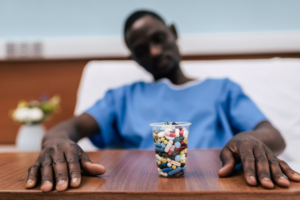A patient who received a liver transplant decreased his anti-rejection drugs from 40 to one (with the hope to eventually eliminate all anti-rejection medications being taken) with the help of doctors and an experimental procedure, as published this week by The New York Times.
The procedure involves training the immune system of the patient receiving the organ into not attacking the new organ by manipulating white blood cells from both the organ donor and the recipient and later reincorporating those cells into the recipient.
The Advantages and Disadvantages of Anti-rejection Drugs

In order for organ transplants to be successful, patients must take multiple drugs to decrease the chances of the body rejecting the donated organ. However, these drugs can be costly and taxing on the body—increasing the risk of kidney failure, diabetes, accelerated heart disease, infection, cancer and cholesterol problems.
For kidney disease patients, taking anti-rejection drugs and enduring their side effects after a kidney transplant may be advantageous to having to undergo dialysis treatments multiple times a week.
Future Studies
 Scientists are planning to conduct the procedure on twelve additional patients and expand further if those procedures are successful.
Scientists are planning to conduct the procedure on twelve additional patients and expand further if those procedures are successful.
Right now, individuals who have already had an organ transplant are not eligible to participate in these experiments. However, that could change after researchers further explore and understand these procedures.




